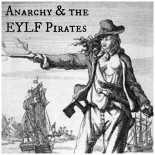Belonging… a sense of place
I have tried writing about ‘belonging’ several times as a pirate piece. I had all this research, all these ideas, all these contemporary narratives I wanted to include. My notes are all about bell hooks and her splendid book (‘Belonging: A Culture of Place’), about current research projects about belonging, about the politics of belonging, about multiple belongings, about what people give up or change in order to belong, what is gained by belonging, about how belonging is explored in Sons of Anarchy and Walking Dead, about names on lockers, about family photos… but those notes just wouldn’t work themselves into the narrative I was trying to tell. In fact, I wasn’t sure what I was trying to tell and I left my notes alone for months.
A few weeks ago, I was introduced to the term ‘solastalgia’- a sense of loss of place. Intrigued, I googled it. The term was crafted by an Australian philosopher in reaction to research he was doing with people living by open coal mines who were feeling like their sense of place was becoming lost. I found this great clip on youtube:
https://www.youtube.com/watch?v=pqT1x6pfESQ
Losing Our Endemic Sense of Place: Solastalgia in Western Australia
It blew my mind. It linked together things I had never thought of, but yet, these ideas made perfect sense. Glenn Albrecht, the philosopher who coined solastalgia, talks about the connections between place, identity and mental health. He has created another term- psychoterratic- to explain the earth-related mental states, the relationships we have with our home environments. He talks of his own eco-biography (what a fantastic word) of growing up in (now) metropolitan Perth with animal and plant species that are no longer there. Returning to this area as an adult, he felt an immense loss of place that the animals and plants and landscape from his childhood no longer existed there. He talks about this in terms of sustainability, climate change but also in terms of how the “environment is part of your interior landscape”.
These ideas have strong connections to the Early Years Learning Framework.
When we look at holistic approaches on page 14 on the EYLF, it states: “Educators foster children’s capacity to understand and respect the natural environment and the interdependence between people, plants, animals and the land”.
When we look at the Wellbeing outcome on page 31 it states that educators “promote children’s sense of belonging, connectedness and wellbeing”. The definition of Wellbeing could easily be extended to encompass the idea of psychoterratic wellbeing- our wellbeing that is connected to the earth and our environments.
Outcome Two, Community, states this on page 25: “Children’s connectedness and different ways of belonging with people, country and communities helps them to learn ways of being which reflect the values, traditions and practices of their families and communities” and on page 29: “educators consider the nature of children’s connectedness to the land and demonstrate respect for community protocols”.
There is incredible scope within the EYLF to think about solastalgia, as well as another term Albrecht coined: “eutierria”. He explains this as “a feeling where the boundaries between self and the rest of nature dissolve and a deep sense of harmony and connectedness pervades consciousness”.
Albrecht coined these terms because he realised there were no words in English to describe the endemic sense of place and loss of place his research participants were explaining to him. These are important words, important ideas that cross many elements of the EYLF- sustainability, natural environments, holistic approaches, connections to country, wellbeing, identity and community. Years ago, I remember a child telling me that her favourite tree in the park had been cut down and her sense of outrage, of sadness, of loss really struck me. It was more than just a place she liked to climb. It was the loss of place, the loss of a relationship she had with this tree.
Albrecht cites what I know now is a famous ecological quote, but to me, it’s new.
“You forget that the eco-mental system called Lake Erie is part of your wider eco-mental system- and that if Lake Erie is driven insane, its insanity is incorporated in the larger system of your thought and experience” (Bateson, 1973).
And I take these ideas, this quote and those parts of the EYLF and wonder how this can challenge the way I think about and talk about and teach about children’s relationships with their world.
© Awilda Longstocking 2014
Anarchy & the EYLF Pirates
Refuse. Resist. Rebuild.
